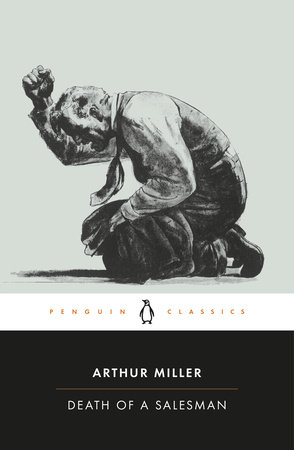
Miller’s play is a poignant reflection of the social anxieties that permeated post-World War II America. The late 1940s were marked by rapid economic and social transformation, which fostered both optimism and disillusionment. “Death of a Salesman” serves as a microcosm of these pressures, questioning the validity of traditional American values such as the pursuit of the American Dream. The narrative delves into themes of identity loss and the resistance to change, encapsulated in Willy Loman’s tragic struggle against his own delusions and societal expectations.
Arthur Miller redefined the concept of the tragic hero through Willy Loman. Unlike classical tragic heroes who possess noble stature, Loman is an everyman whose grandiose dreams are both unattainable and destructive. This radical departure from traditional tragedy emphasizes the vulnerability and ordinariness of his protagonist, thereby universalizing the tragic experience. Loman’s story becomes a cautionary tale about the dangers of unbridled ambition and self-deception.
“Death of a Salesman” has retained its powerful impact through numerous adaptations in film and television, underscoring its enduring relevance. The play’s themes continue to resonate, reflecting ongoing societal and economic challenges. Miller’s work has been honored with the Pulitzer Prize for Drama, solidifying its place as a cornerstone of American literature and theater.
At its core, “Death of a Salesman” is a profound exploration of the American Dream and its implications on individual and familial levels. Willy Loman’s journey is emblematic of the broader existential struggles faced by many Americans. His inability to reconcile his dreams with reality leads to a poignant critique of a society that equates worth with success. The play also examines intergenerational conflict, with Willy’s relationship with his sons, Biff and Happy, highlighting the destructive nature of unrealistic expectations and emotional neglect.
Arthur Miller’s masterful storytelling in “Death of a Salesman” has cemented its status as a timeless classic, continuing to provoke discussion and analysis. The play’s exploration of universal themes such as identity, ambition, and disillusionment ensures its continued relevance in both academic and theatrical contexts. Its impact on the American theatrical landscape is profound, inspiring countless works that address similar themes of societal pressure and personal failure.
In conclusion, “Death of a Salesman” remains a pivotal work in American theater, offering a compelling examination of the human condition and societal expectations. Miller’s nuanced portrayal of Willy Loman and the tragic consequences of his delusions provide a powerful commentary on the nature of success and the American Dream.
This review offers an in-depth look at the significant themes, historical context, and lasting impact of “Death of a Salesman,” positioning it as an essential subject of study for scholars and enthusiasts of American theater.
By: Jide Adesina


